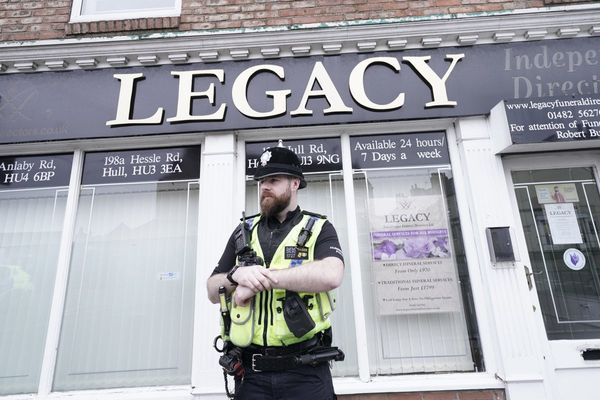More than a quarter of Scotland's prison population is made up of people who are on remand and have not yet been to trial. Over 2000 inmates are languishing behind bars - despite officially being innocent of the crimes they have been charged with.
The remand population rate, which has doubled since April 2020, is putting major pressure on prison chiefs across the country. Remand prisoners must be housed separately from those already convicted of their crimes.
As of the beginning of August, 2,164 inmates were on remand and untried, with a further 303 convicted but still awaiting sentence, taking the total remand population to 29 per cent. The average time a remand prisoner spends inside is 87 days.
However, while some move through the system quickly, 33.4 per cent of those currently on remand have been waiting beyond the 140-day mark. A snapshot from last month showed those on remand common assault accounted for the most, followed by crimes against public justice, and threatening and abusive behaviour.
At the most serious end of the scale, a number of arrivals on remand related to those accused of murder and culpable homicide, rape and attempted rape, and sexual assault. However, lower-level offences such as possession of drugs, shoplifting and wildlife offences also featured.
Politicians are now demanding the Scottish Government tackles the backlog, which has been blamed on Covid-19, and makes more cash available for non-custodial alternatives such as electronic tagging and supervision orders. The findings were published in today's social justice magazine 1919.
Scottish Liberal Democrat justice spokesperson Liam McArthur said: “Far too many of those locked up are people who haven’t been convicted. The SNP needs to tackle lengthy court delays which are preventing people from having their cases heard and preventing victims from seeing justice done.
“We need proper investment in bail supervision orders and electronic tagging so that remand is only used where it is necessary to safeguard communities and public safety.”
A spokesperson for the Scottish Prison Service said: “While it is not for us to determine who should be remanded to custody, the impact on our establishments is significant. We are managing an increasingly complex prison population.
"Certain demographics are unable to be located in certain establishments, or even in the same area within an establishment. The challenge we face on remand is also exacerbated by the court backlog, where it is routinely in excess of 140 days. This means they are frequently given backdated sentences, and released very soon after, which limits our window for intervention and to address issues that need to be dealt with on release.”
A snapshot from last month about what offences those on remand were accused of showed common assault accounted for the most, followed by crimes against public justice, and threatening and abusive behaviour.
The Scottish Government’s Justice Analytical Services report stated: “While the overall prison population is lower than pre-pandemic levels, the number of people held on remand remains at a historic high. The changing levels across groups that are required by law to be housed separately – like those on remand – pose growing difficulties in the management of the prison population.”
Earlier this summer, it was revealed thousands of short-term jail sentences were still being imposed in Scotland despite a government pledge to bring it to an end. Sentences of less than a year account for around three-quarters of all those handed down in the country’s courts.
Insiders said that placed further pressure on the prisons system, with Scotland already having one of the highest incarceration rates in western Europe. *You can read 1919 magazine here: www.1919magazine.co.uk *
Crime: Don't miss the latest Scottish crime and courts news from the Daily Record. Sign up to our Criminal Record newsletter here .







